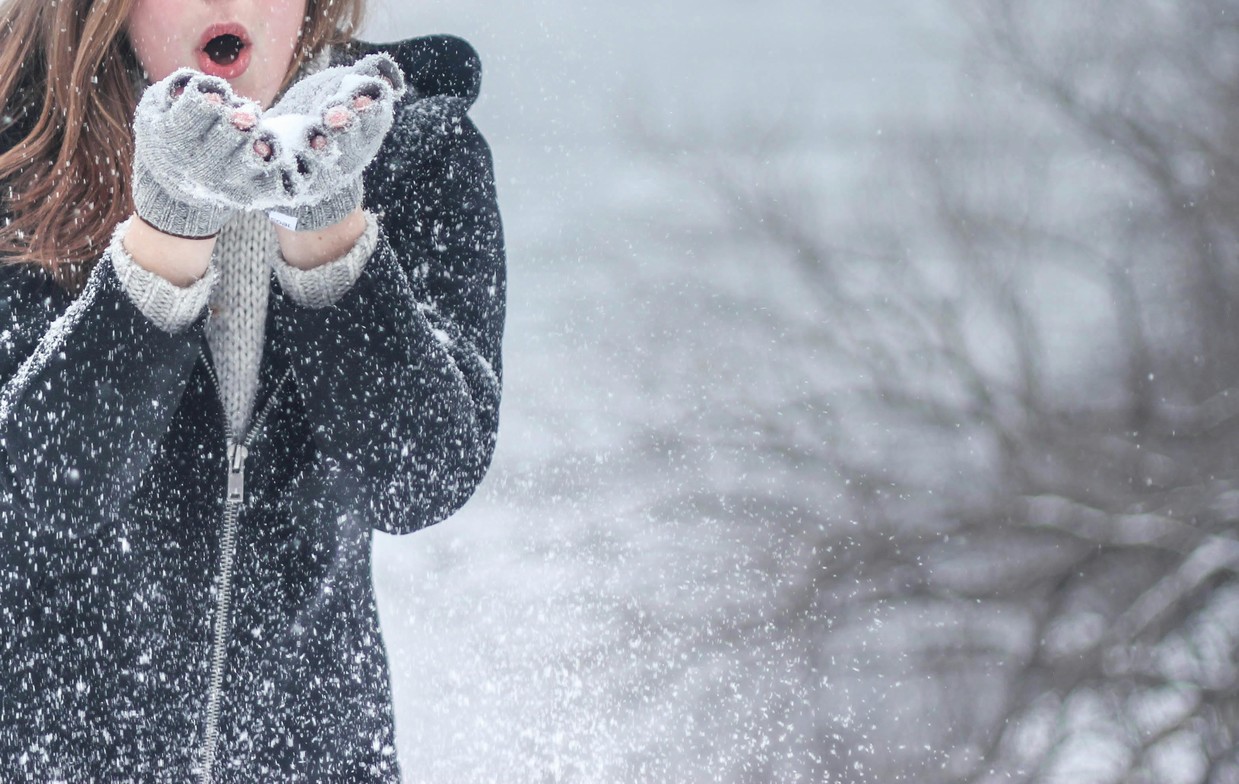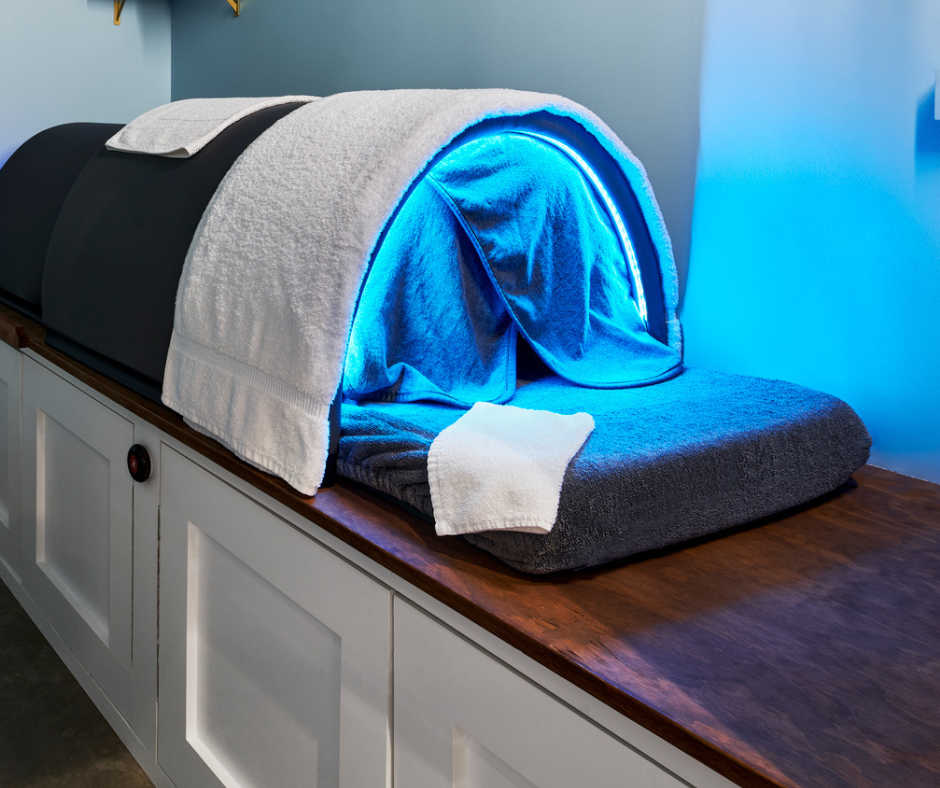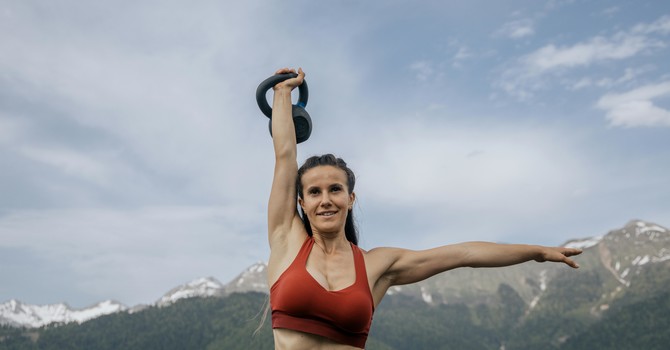
As winter settles in with its shorter days and colder temperatures, many of us are tempted to trade in our fitness routines for cozy evenings on the couch. While the pull toward a more sedentary lifestyle during these colder months is real, staying active in winter is crucial for both physical and mental well-being. While it can be challenging to find the motivation to exercise when the days are colder, embracing winter as a season for movement brings a range of benefits that are essential for your health.

4 Reasons to Exercise in the Winter
1. Exercise Boosts Your Immune System
One of the most compelling reasons to stay active in winter is the positive impact on the immune system. Winter is the time when colds and flu are at their peak, and regular exercise has been shown to strengthen immune function, making it easier for the body to fend off seasonal bugs. Physical activity (especially cardio) boosts circulation, which allows white blood cells and antibodies to move more efficiently throughout the body. This can help the body detect illnesses earlier. As a result, you’re not only more likely to avoid catching a cold, but you’re also more likely to recover quickly if you do fall ill. Keep in mind, however, that too much of a good thing can be bad. Research shows that when it comes to boosting your immunity, moderate-intensity exercise is best. Prolonged high intensity training — especially without appropriate rest between sessions — can suppress your immune system. So remember to recover just as hard as you train — and Champion Wellness has you covered!

2. Exercise Boosts Your Mood and Cognitive Function
Another benefit of staying active in winter is the positive effect on mood and mental health. The colder, darker days of winter are known to bring feelings of lethargy or sadness for many, with some even experiencing seasonal affective disorder (SAD). Exercise is a natural way to help combat these feelings, as it releases endorphins, which are the body’s feel-good hormones. These endorphins improve mood, aid in alleviating feelings of stress, and help reduce symptoms of depression. Physical activity also helps lower levels of cortisol, the hormone associated with stress, which can bring about a more balanced emotional state. Joining group fitness classes, whether it’s a stretch class, dance, or even kickboxing, can add a social element that provides an additional mood boost. If you prefer working out at home, online workout videos can also offer fun, high-energy routines that help elevate your spirits without having to venture outside.
Maintaining a fitness routine during winter can also combat the sense of fatigue that often accompanies the colder months. Low energy levels are common as winter settles in, but regular exercise is a natural remedy. Physical activity increases blood flow and oxygen throughout the body, leading to higher energy levels and improved stamina. High-intensity interval training (HIIT) workouts, which consist of short bursts of intense activity, can offer an immediate energy boost, perfect for days when you feel sluggish. Even a quick 20-minute walk or jog can help you feel more awake and alert, giving you the energy to tackle the day ahead!
Exercise has positive effects on cognitive function as well. Regular exercise improves blood flow to the brain, which enhances concentration, memory, and mental clarity. This cognitive boost can be particularly helpful during winter when the lack of sunlight can impact mood and mental sharpness. Cardio workouts are especially effective in elevating heart rate, which stimulates the brain and sharpens focus.

3. Exercise Boosts Sleep Quality
In addition to these benefits, staying active can significantly improve sleep quality. Many people struggle with sleep during winter, as the longer nights and shorter days can disrupt natural sleep cycles. Exercise can help by promoting better sleep patterns, making it easier to fall asleep quickly and enjoy a deeper, more restorative rest. Morning workouts can be especially helpful in setting the body’s internal clock, leading to better sleep at night. Calming evening routines, like gentle yoga or stretching, can help you unwind and prepare for restful sleep.

4. Exercise Improves Mobility
Winter can also bring about stiffness and reduced mobility, but regular physical activity helps combat these issues by maintaining flexibility and strength. Cold weather can make muscles and joints feel tight, which increases the risk of injury. Exercise that focuses on flexibility, such as regular stretching routines, can help keep the body limber and reduces this risk. Strength training, on the other hand, is essential for maintaining muscle mass, which can decline without consistent use. By incorporating a combination of flexibility and strength-focused activities, you can ensure that your body remains mobile and resilient throughout winter.

After your workout, don’t forget to recover!
With maintaining your fitness routine, it's also important to ramp up your recovery. Incorporating regular sauna sessions into a winter wellness routine can offer additional benefits, especially for muscle recovery and overall health. Saunas provide a soothing, warm environment that can counter the physical toll of colder weather and support post-workout recovery. The intense heat in a sauna prompts the body to sweat, which helps eliminate toxins and reduces inflammation, benefiting both the muscles and immune system. After intense exercise, spending time in a sauna can improve circulation, as heat causes blood vessels to dilate, increasing blood flow to tired muscles. This enhanced circulation delivers oxygen and essential nutrients to muscles, promoting faster repair and reducing soreness.
The heat from a sauna session also aids muscle relaxation, helping to relieve tension and reduce stiffness that can build up, especially during winter. This is particularly useful if you engage in regular strength training, where muscle recovery is essential for progress and avoiding injury. Additionally, the warmth of the sauna can help keep joints limber, reducing the discomfort often associated with winter's colder, damp weather. Relaxing in a sauna also activates the body’s parasympathetic nervous system, the “rest and digest” state that allows muscles to recover fully and prepares you for future workouts.
Beyond the physical benefits, saunas can also help curate a calming environment to unwind after physical activity or a long day. For many, this helps reduce stress and promotes a sense of relaxation, improving overall sleep quality and further supporting recovery. By incorporating sauna sessions into a winter fitness routine, you can enhance muscle recovery, maintain flexibility, and promote both physical and mental resilience throughout the season.
By embracing winter as a time for movement and setting realistic goals, you can maintain your physical health, support your mental well-being, and build resilience that will carry you through the colder months. So, bundle up, get your workout gear ready, and let winter be a season of vitality rather than hibernation. As spring approaches, you’ll feel stronger, healthier, and ready for the brighter days ahead.
Sources:
Harvard Medical
Dr. Heather Champion
Contact Me



